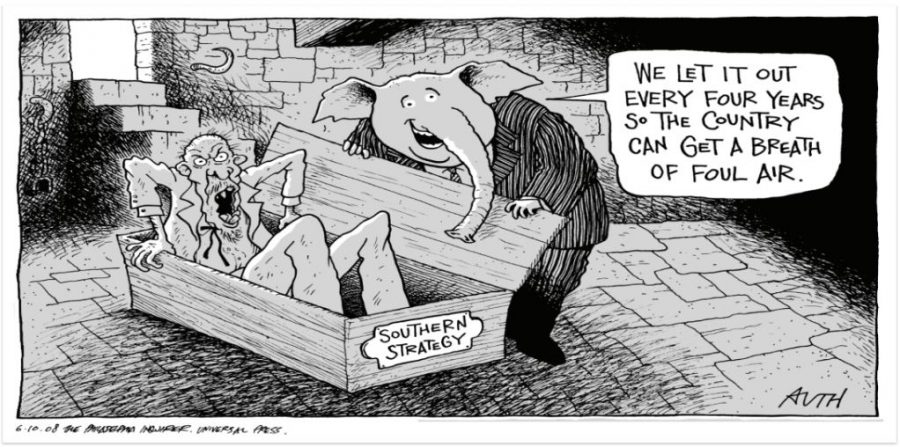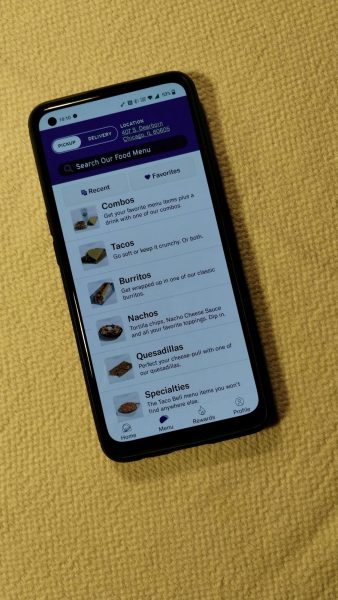The Trump administration has adopted the Southern Strategy…And it’s working to perfection
Once perceived as a political outsider, Donald Trump burst onto the national scene when he insinuated that migrating Mexican nationals entering the U.S. were not part of the upper echelon of Mexican society, but rather the rapists and criminals that had been ostracized from Mexico. Phrased in a manner that stimulated heated debate, opponents lambasted Trump’s remarks as an incendiary attack meant to dehumanize an entire demographic. His supporters, however, largely rebuked such accusations as overly sensitive and borne from distaste towards a man perceived as a political intruder, going so far as to introduce the derogatory moniker of ‘snowflake’ upon those offended by Donald Trump’s comments.
Recognizing that the national spotlight suddenly shone bright upon his podium, Trump followed up on his polarizing comments with a barrage of remarks and tweets that further demonized Mexican and Central American migrants. Such comments, which critics condemned as thinly veiled derogatory rhetoric, provided political allies with just enough wiggle room to construct a feasible public relations spin. However, keen viewers readily identified that the Trump campaign, seizing a fleeting opportunity, opted to adopt and mutate a tried-and-true political strategy popularized by the GOP platform: The Southern Strategy.
The Southern Strategy was an ingenious political tactic first introduced by the Nixon administration and later perfected by the Reagan administration. Identifying that the two leading political parties were undergoing an ideological shift–conservatives had previously gravitated toward the Democratic platform while liberal Americans mostly voted Republican–Nixon’s confidants proposed that he use a strategy that would earn loyalty from southern, Democratic voters fatigued by the party’s newfound acceptance of minority demographics, particularly the support that John F. Kennedy and his successor, Lyndon B. Johnson, offered toward the Civil Rights Movement. However, modern scholars have since criticized both Nixon and Reagan for their then-novel strategy. More specifically, critics attacked the use of veiled racial language disguised as a vendetta against recreational drugs for the sake of recruiting Southern white voters. White House Counsel and political advisor under the Nixon campaign, John Ehrlichman offered the following explanation pertaining to the War on Drugs:
“The Nixon campaign in 1968, and the Nixon White House after that, had two enemies: the antiwar left and black people. You understand what I’m saying? We knew we couldn’t make it illegal to be either against the war or black, but by getting the public to associate the hippies with marijuana and blacks with heroin. And then criminalizing both heavily, we could disrupt those communities. We could arrest their leaders, raid their homes, break up their meetings, and vilify them night after night on the evening news. Did we know we were lying about the drugs? Of course we did.”
Historically, the Southern Strategy has been flawlessly implemented by the Republican party for political gain. However, in 2019, any tangible, identifiable hostility toward the African-American demographic, barring a few notable exceptions, will essentially result in the immediate disqualification for a prospective candidate. Unfortunately, rather than instilling fear in Americans by manufacturing a relationship between African-American and drugs through crude exaggerations over the effects of drug use, the Trump administration has opted to focus their attention on demonizing immigrants and attributing upticks in crime, particularly violent crime and illicit drug distribution, to migrants. In the same manner that Nixon, and later Reagan, inspired loyalty through the reinforcement of unfounded biases bestowed upon the demographics they perceived as political threats, Donald Trump and his administration have mutated the Southern Strategy to demonize, dehumanize, and target the Hispanic/Latinx communities.
Viewers can draw parallels between Reagan’s depiction of the African-American welfare queen and Trump’s depiction of the criminal Hispanic; George Bush’s Willie Horton ad shares disconcerting similarities with the Luis Bracamontes ad that was denounced as so racist that even traditionally right-wing outlets refused to air it; Trump’s pardoning of Joe Arpaio, the man who was indicted by the United States Justice Department for criminal contempt after he refused to cease his racially discriminatory practices and went on camera to describe his prisons as Mexican concentration camps feels eerily similar to Reagan’s pardoning of the aforementioned John Ehrlichman. Whether we support, reject or remain indifferent to such a political tactic, it matters not, for the Donald Trump administration has successfully adopted and molded the Southern Strategy to fit seamlessly into the current political and social atmospheres.




Kandise Le Blanc • May 17, 2021 at 12:52 pm
A perfect use of Ehrlichman‘s quote